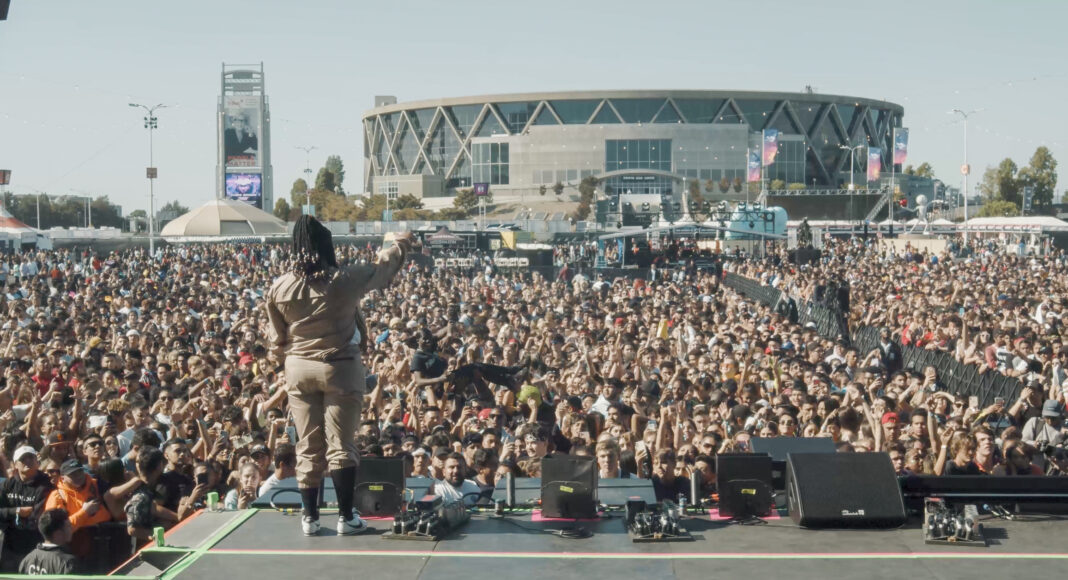For almost a full week now, Cinequest’s online festival Cinejoy has been streaming new works for savvy cineastes to enjoy at home. But with more than one hundred films to choose from (44 features and 71 shorts), the list can be a lot to take in.
Fortunately, this year, the fest has films organized by the very vibey rubric emotion. The festival’s emotions include Dazzlers, Mindbenders, Good Times, Inspiration, Illumination, Thrills, Love and Laughs, but there’s still quite a bit of variation in each.
Here’s a look at three of the films available this week along with the emotion they explore in the festival.
Inspirations
We Were Hyphy
First-time director Laurence Madrigal opens his love letter to Bay Area hip hop with three distinct images: the Bay (viewed from Oakland), the “RIP Mac Dre” mural at Fremont High and the rising trails of smoke—vesper-like in the evening light—of a donut-spinning Oakland sideshow. From here, Madrigal and crew drop viewers right into hyphy, the “movement that almost was,” tracing the lineage of the bouncy Bay Area sound from Too $hort and 808s, through its 2000s heyday to today.
Described most simply as a hyperized, playful update to Oakland’s mobb music, hyphy celebrated self-expression, creative linguistics and, most important of all, going stupid (it’s about “how beautiful dumb could be,” says one contributor). The movement is represented from all sides with interviews including producers and rappers, KQED personalities and historians, label heads, photographers, dancers and sideshow drivers.
One notable scene sees Too $hort defining hyphy as the sound of producer Rick Rock followed by the work of Traxamillion. Though the East Bay gets the most attention (with some love given to San Francisco artists like San Quinn and Roach Gigz), in the late Traxamillion, the South Bay makes a profound mark on the movement as well.
Let’s hope the film’s audible yeee echoes for years to come.
Illuminations
Seokkarae
After losing her mother, Jiwon is left with an alcoholic father and a choice: move to Seoul or stay at the family’s isolated country farm. Beginning with its poignant first line “We’re a bit lost,” Seokkarae (Mother Midnight) is meditative and cool (if a bit slow) and carried by striking visuals throughout.
Director Mike Beech previously handled cinematography for soul-searching documentaries Reclaiming the Negative (about North Koreans who have defected) and Chasing the Present, the former of which won Beech a cinematography prize at the 2019 Awareness Film Festival. The same cinematic eye is present in Seokkarae, its measured doses of dialog often giving way to the wordless sights that make up Jiwon’s world: a cloud of birds over the lake, a lone lantern on a trail, the country store lit by the morning sun (compare these to the images in Seoul: walls of frosted glass and brick).
While the film flows as if on a lazy river, looming in the background is a very real threat: Mr. Jo, an incensed contractor who claims the family ruined his career, and who periodically shows up drunk to demand compensation. While Jiwon faces the reality of her own life, she’s left to settle the debts of the previous generation. Here, everyone seems to have an issue to work out with their father, but it’s the mothers who must make the decisions.
Mindbenders
Wolves
When a shy furniture mover loses his job, he picks up a new hobby: hunting down a local animal mutilator (surely America’s second or third favorite pastime). Moody and tense, Wolves is about one man trying to use his worst parts for good. As the main character (known only as “Him”) tells another, “I want to find him because I feel like I could be him. This is someone like me.”
With its grim subject matter, austere snowiness and psychological intensity, Wolves is not for the faint of heart. It will, however, likely appeal to fans of bleak thrillers like Villeneuve’s Prisoners or Nolan’s Insomnia—or just the true-crime junkie with a taste for the fictional.
Cinejoy
Streaming through April 17



